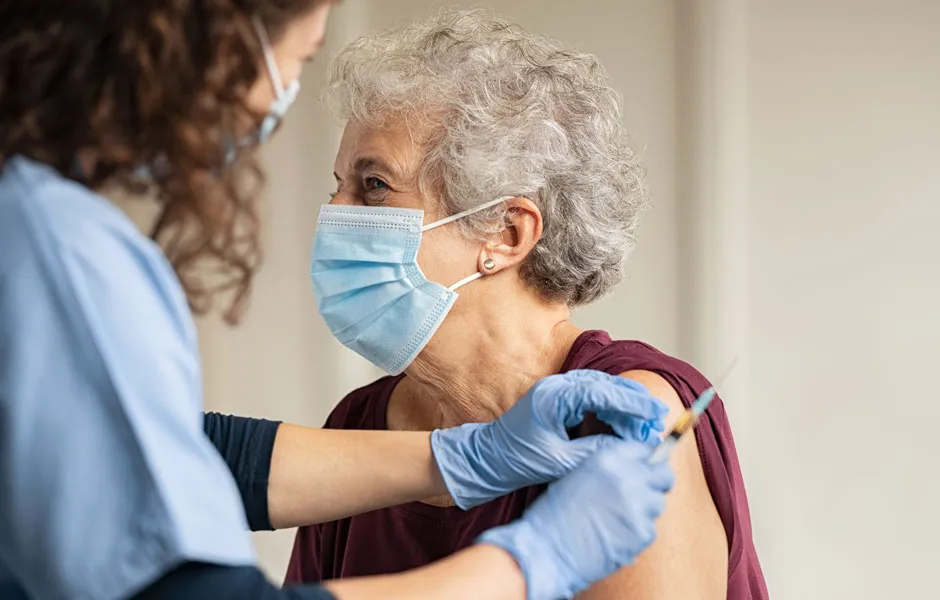The UK’s current COVID-19 vaccination programme may not be sufficient to achieve herd immunity due to emerging virus variants, new research suggests.
The study of the country’s current coronavirus vaccine rollout concludes the majority of people need to be inoculated by the “more effective” Pfizer or Moderna vaccines, rather than the Oxford jab.
It suggests this will be needed to provide enough indirect protection to those who are not immune – also known as herd immunity.
Now both approved for use in the UK, both the Pfizer and Moderna vaccines have been shown to be over 90 per cent effective. The Oxford vaccine has been demonstrated to be up to 80 per cent effective.
The research, based on modelling undertaken by the University of East Anglia (UEA) scientists, has not yet been peer-reviewed.
Initial modelling predicted 69 per cent of the population would need to be given the Pfizer jab – or 93 per cent the Oxford vaccine – to bring the R number below one and stop the spread of the virus.
However, when the researchers took into account the highly transmissible UK coronavirus variant, they found that vaccinating the entire population with the Oxford jab would only reduce the R value to 1.3.
When the R number – the number of people that one infected person will pass the virus to, on average – is above one, the outbreak is growing.
Scientists behind the new study suggest the Pfizer vaccine would require 82 per cent of UK to be immunised to control the spread of the new variant.
Read more about COVID-19:
- Ventilation and viral loads: the key misunderstandings of how coronavirus spreads
- Coronavirus vaccine: Is it safe?
Study co-author Professor Alastair Grant said: “Some people will refuse the vaccine, so achieving an 82 per cent vaccination rate (with the Pfizer vaccine) will likely be impossible.
“The Oxford vaccine reduces the incidence of serious illness to a greater extent than it reduces symptomatic illness, which is still common in those who have had this vaccine.
“Its efficacy against the incidence of asymptomatic infections is lower, reducing its efficacy against all infection from 70.4 per cent to 52.5 per cent for the pooled data.
“This means that its overall protection against infection is only partial – around 50 per cent.”

For this reason, Grant said the Oxford vaccine “cannot take us to herd immunity, even if the whole population is immunised.”
He added: “The Oxford vaccine will no doubt be an important control intervention, but unless changes to the dose regime can increase its efficacy, it is unlikely to fully control the virus or take the UK population to herd immunity.”
Professor Azra Ghani, chair in infectious disease epidemiology at Imperial College London, said the findings do not mean the UK will be living with the current level of COVID-19 restrictions indefinitely.
“If a high proportion of those that are at risk of severe complications from the disease are vaccinated, then the number of hospitalisations and deaths will be dramatically reduced and the way we react to the circulating virus should become similar to the way that we react to other circulating viruses such as influenza,” she said.
“Furthermore, although the vaccines are not yet recommended for children, studies are underway and therefore it is likely that children could be vaccinated if that is considered necessary.”
No coronavirus vaccine has yet been approved for use on children, a group making up 19 per cent of the UK population.
Read more about coronavirus: